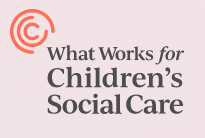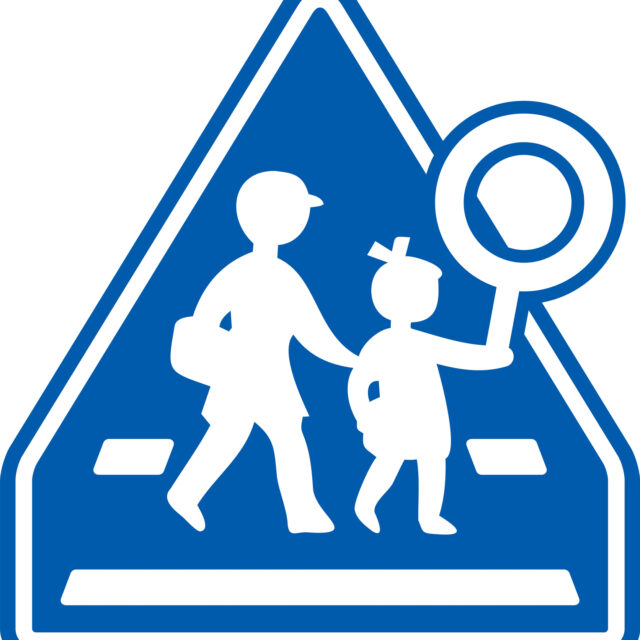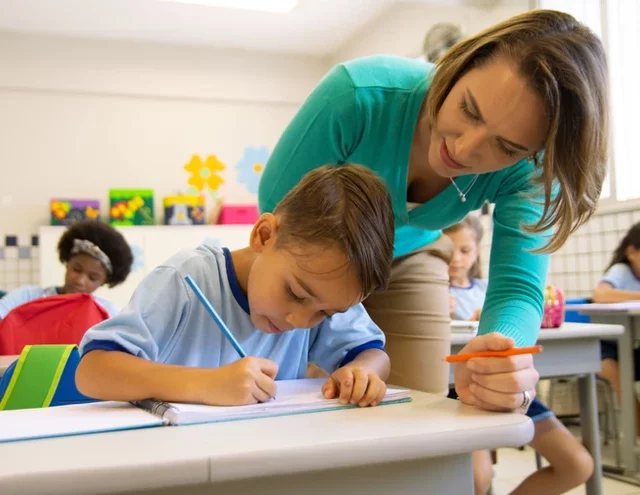Supervising Designated Safeguarding Leads in Schools: Focus on Child Sexual Abuse
This study aims to establish the impact of providing a designated social worker to supervise Designated Safeguarding Leads (DSLs) in schools. The programme has a specific focus on supporting DSLs in identifying and responding to child sexual abuse (CSA). Support on sexual abuse is facilitated through specific training for both social workers and DSLs, with training and materials developed and delivered by the Centre of Expertise on Child Sexual Abuse.
 Pub. Date
Pub. Date
27 April, 2023
 Pub. Type
Pub. Type

Main points
- The impact evaluation did not find that the programme had a statistically significant impact on the primary outcome of contacts relating to potential child sexual abuse.
- A number of sensitivity analyses were conducted in relation to the primary outcome; but the main result remains robust to these additional analyses. In addition, the findings did not suggest evidence of an impact in the latter period of the intervention, and no diferences in efectiveness were apparent between primary and secondary schools.
- Analysis of secondary outcomes relating to contacts and referrals also showed no statistically significant diferences between schools allocated to receive the programme and those that were not. Thus we observe no impact of the programme on total contacts made by schools; contacts resulting in no further action; new referrals originating from schools, or referrals resulting in no further action (all measured as a proportion of pupils).
- The impact evaluation did not find a statistically significant impact on DSL wellbeing. Efects on DSL wellbeing were considered using two scale measures: job-related anxiety-contentment and jobrelated depression-enthusiasm.
- 73% of schools in the treatment group had a least one supervision session, while 27% did not have any sessions.
- Many DSLs did not attend the CSA training day, sometimes as a result of starting the programme late and/or because they were notified at too short notice. Most DSLs and SSWs said the supervision sessions had not focused specifically on CSA issues, and that they were not well connected with the initial training day. Overall, with the exception of DSLs attending the oneday training course on CSA, our findings suggest that this programme was not fundamentally diferent to the concurrent DSL supervision programmes that did not have a CSA focus.
- The survey findings suggest some perceived positive impacts on confidence and practices around CSA. Based on interviews with DSLs, we would expect these to be mainly driven by impacts of attending the bespoke training course, rather than any additional, substantial impacts of the supervision sessions compared to the other programmes.
- DSLs interviewed found the supervision sessions useful, including having the time for reflection, receiving advice, developing new ideas, discussing complex cases or new types of cases, being signposted by the SSW to useful resources or local support organisations, learning from a social worker’s perspective, and discussing their own wellbeing. DSLs expressed support for potential wider rollout.
- There were mixed findings on perceived impacts. Many DSLs interviewed reported that supervision had no impact on their practices, as they were already confident in their ability to perform the role and their knowledge, including about thresholds for referrals to children’s social care. At the same time, many DSLs described positive impacts, particularly by improving confidence in the role, their emotional wellbeing, practices around referrals and knowledge of thresholds, their support of families and children, and in bridging the gap between schools and social care.
- The cost of the intervention is estimated at around £1,400 per school, per school year. This cost is based primarily on the cost of employing a SSW; while this is the most substantive element of expenditure, it is likely to underestimate the full cost of programme delivery as it does not include, for example, hiring costs or ongoing training or support for the SSW.

Funders













